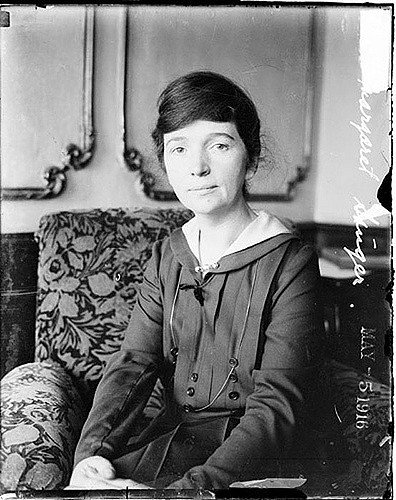
Margaret Sanger was a feminist, nurse, activist, writer, and national and international advocate for women’s access to contraception.
Sanger was born Margaret Higgins to an Irish-American family in 1879; she had ten siblings. She studied to become a nurse practitioner and began working toward a registered nursing degree at White Plains Hospital, but her education ended when she was married in 1902. She and William Sanger had three children but later separated, and Sanger remarried James Noah H. Slee in 1922.
While living in New York City with her first husband and children, Sanger became very interested in living conditions for working-class women and particularly the burden of frequent pregnancies and large families on these women.
At that time, a federal law called the Comstock law forbade the distribution of information about sexual health and contraception, which was considered obscene. Sanger repeatedly disobeyed this law, first publishing a column about sexual health in the New York Call titled “What Every Girl Should Know” and later publishing and distributing a periodical titled The Woman Rebel. It was this publication which coined the term “birth control.” In 1914, Sanger was indicted for violating the Comstock law.
To evade imprisonment, Sanger lived in England for about a year until charges against her were dropped. After returning to the United States, she continued to resist the law, opening a birth control clinic. Police shut the clinic down after 9 days, and Sanger was arrested and imprisoned for thirty days.
Despite these setbacks, Sanger’s work was gaining increasing attention and support. Sanger went on to found a medical journal called the Birth Control Review and later the Birth Control Clinical Research Bureau. Because even the words “birth control” were considered too explicit at the time, the organization later changed its name to the Planned Parenthood Federation of America.
Sanger continued to advocate for birth control throughout her life. In the 1950s, she worked with the International Planned Parenthood Federation and was a primary advocate for the development of the first birth control pill. Sanger died at 86 years of age in 1966.